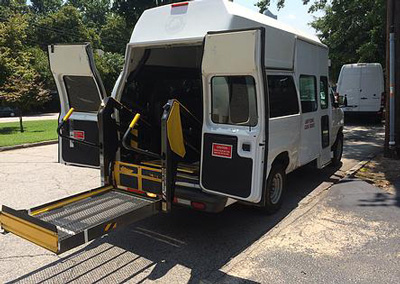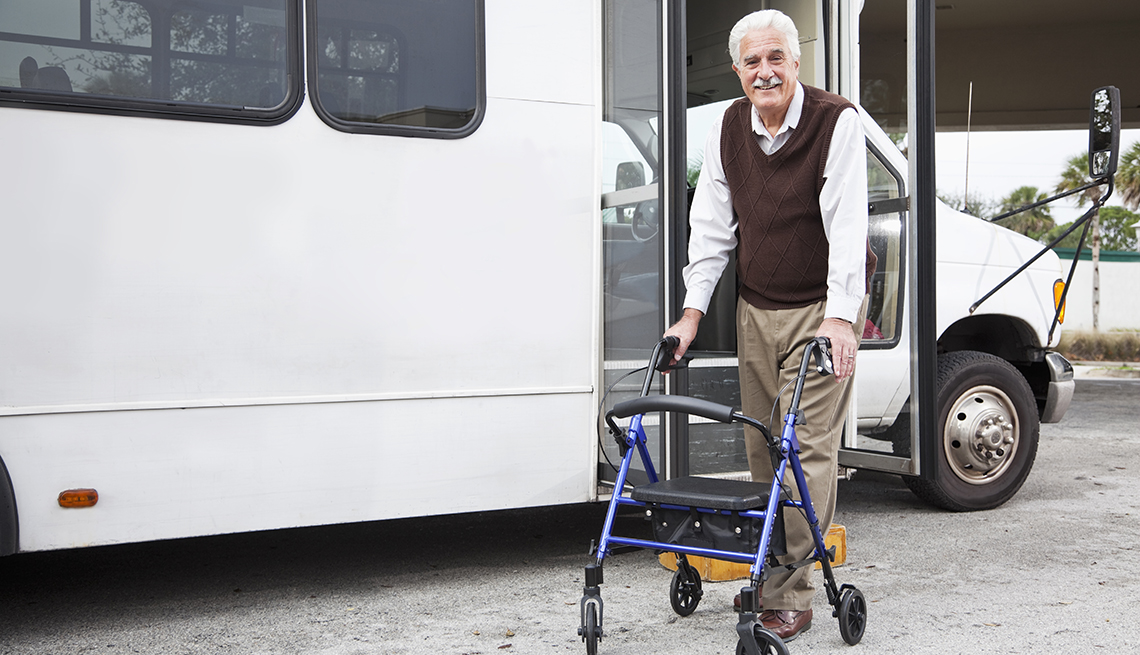Obtainable and Affordable Medical Transport Options for Seamless Wellness Assistance
In the world of healthcare, the accessibility and price of clinical transport are paramount in making certain people can access the treatment they require when they require it. The ability to seamlessly browse transportation choices can dramatically influence an individual's capability to obtain prompt clinical attention, follow-up treatment, and general health. From non-emergency clinical transport services to innovative options like telehealth, the landscape of medical transport is progressing to meet the varied requirements of individuals. Considering the value of this element in health care distribution, discovering the range of choices offered comes to be important for attending to voids in accessibility and affordability.
Non-Emergency Medical Transport Services

These solutions are staffed by qualified professionals that prioritize patient comfort and safety and security during transit. Vehicle drivers are outfitted to take care of individuals with differing clinical demands and ensure that all journeys are worry-free and smooth - Medical Transportation Services Near Me. In addition, non-emergency clinical transportation solutions commonly make use of customized vehicles that are wheelchair-accessible, making them suitable for a wide variety of individuals with various mobility needs
Volunteer Vehicle Driver Programs
Volunteer chauffeur programs contribute in supplying transport aid for individuals in demand of non-urgent medical care. These programs depend on the generosity of volunteers who donate their time and vehicles to aid transport clients to and from clinical appointments. By making use of volunteer motorists, companies can provide a cost-effective service for individuals who might not have accessibility to reliable transport.
Among the vital benefits of volunteer vehicle driver programs is the personalized care and interest that patients obtain. Unlike standard transport services, volunteer drivers typically create a rapport with the individuals they help, developing a encouraging and thoughtful setting during what can be a stressful time. Furthermore, volunteer chauffeur programs can help connect the space for people residing in rural or underserved locations where public transport alternatives may be restricted.
Public Transport Options

One of the key benefits of mass transit is its extensive schedule in rural and metropolitan locations alike. This considerable network enables individuals from varied backgrounds to take a trip to clinical consultations with relative ease. Additionally, public transport systems are usually furnished to accommodate people with impairments, offering available traveling choices for those with mobility difficulties.

Ride-Sharing and Transport Network Firms
The development of modern transport choices for clinical functions prolongs past standard public systems like trains and buses to incorporate the cutting-edge world of ride-sharing our website and transportation network business. Ride-sharing services such as Uber and Lyft have actually reinvented the way people travel to clinical visits, supplying benefit and versatility to individuals who may not have accessibility to their vehicles or standard public transport. These systems permit users to ask for a ride with the touch of a button on their mobile phones, providing door-to-door solution that can be specifically useful for individuals with mobility challenges or those needing aid.
Transport network business (TNCs) have likewise played a substantial role in bridging the void in clinical transport solutions. Business like Veyo and RoundTrip specialize in non-emergency clinical transport, accommodating individuals that require a greater level of support throughout their journeys to clinical facilities. By partnering with healthcare service providers and insurance providers, TNCs make sure that individuals can access trustworthy and timely transport services, eventually adding to boosted health results and dig this individual contentment.
Telehealth and Online Consultations
Enhancing health care access and ease, telehealth and virtual appointments have actually become pivotal elements in modern-day clinical techniques, transforming the means patients connect with doctor. Telehealth leverages innovation to promote remote communication in between individuals and health care professionals, offering a broad range of solutions such as virtual consultations, remote tracking, and electronic prescriptions. Digital consultations make it possible for clients to look for medical recommendations, diagnosis, and therapy from the comfort of their homes, removing the requirement for physical brows through to healthcare centers. This method not only saves time and lowers transportation expenses for patients yet likewise boosts the overall performance of medical care distribution.
Furthermore, telehealth plays a vital duty in extending medical services to underserved neighborhoods, country areas, and individuals with restricted flexibility. By damaging down geographical barriers and raising health care outreach, telehealth promotes early intervention, connection of care, and patient involvement. As technology remains to advancement, telehealth is positioned to play an increasingly considerable function in forming the future of medical care delivery, fostering better health and wellness outcomes and patient contentment.
Verdict

From non-emergency medical transportation solutions to cutting-edge remedies like telehealth, the landscape of medical transportation is advancing to fulfill the diverse needs of patients.Non-Emergency Medical Transportation Solutions promote the prompt and safe transportation of people requiring non-urgent medical here care to and from medical care facilities.The advancement of modern-day transportation choices for clinical functions prolongs past conventional public systems like trains and buses to incorporate the ingenious world of ride-sharing and transportation network companies.Transportation network business (TNCs) have additionally played a significant role in linking the gap in medical transport services. Non-Emergency Medical Transport Services, Volunteer Motorist Programs, Public Transportation Options, Ride-Sharing and Transportation Network Companies, and Telehealth and Virtual Consultations all play a critical function in dealing with transportation barriers to health care access.